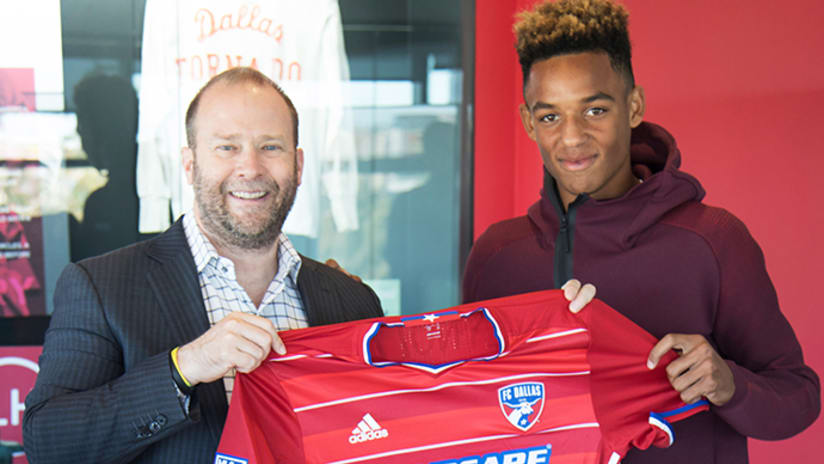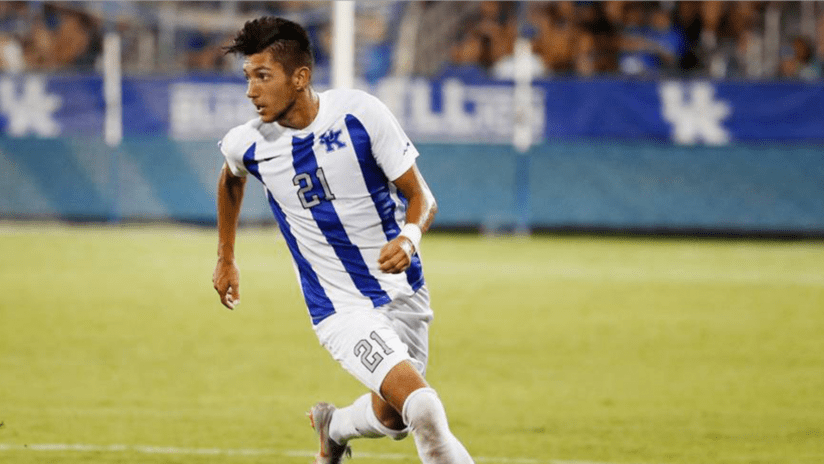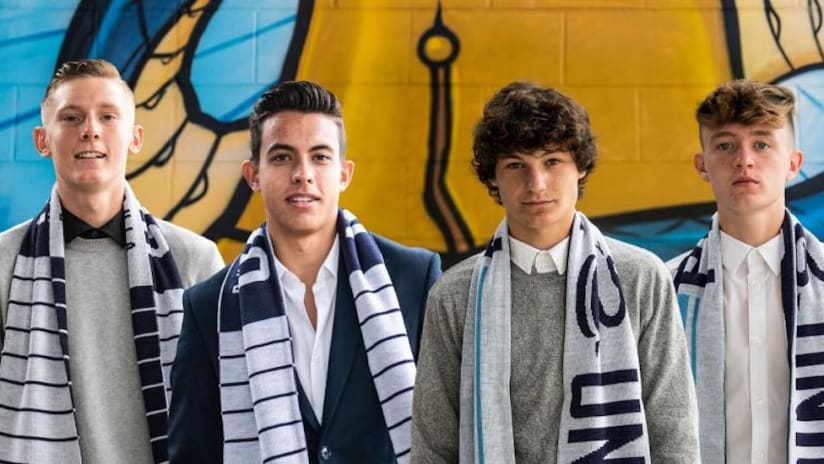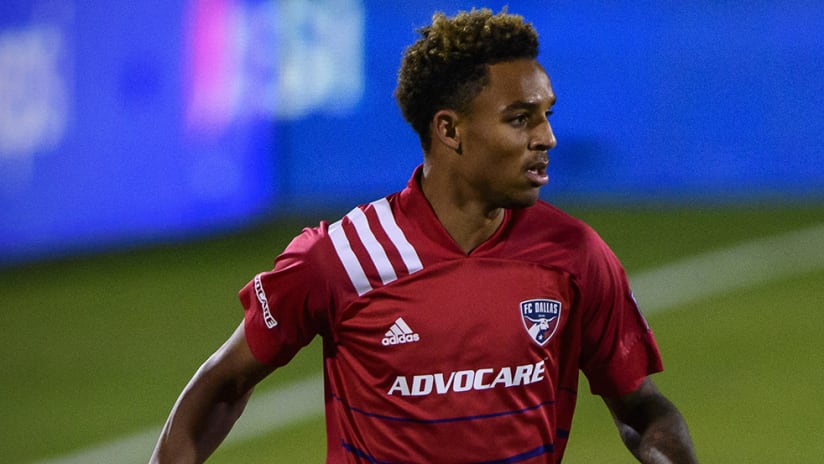Like most everyone else involved with American soccer, Dan Hunt was crushed by the US men’s national team’s failure to qualify for the 2018 World Cup.
Unlike most of the rest of us, however, the FC Dallas co-owner and president has the power to make changes.
And though his team is in danger of missing the Audi 2017 MLS Cup Playoffs with a freefall that has seen them muster one win in their last 14 matches, Hunt says he’s already working with renewed focus to improve the future of FCD and, he hopes, US Soccer. He tweeted in the aftermath of the USMNT’s loss at Trinidad & Tobago last Tuesday that he’s “even more committed” to developing “good, young American talent,” and reiterated that stance in an interview with MLSsoccer.com last Friday.
He’ll do that in part by making sure FC Dallas get their Homegrown Players more playing time. Hunt and FCD already have one of the more productive youth systems in the US. They’ve produced regular USMNT midfielder Kellyn Acosta, promising US goalkeeper Jesse Gonzalez and 19-year-old midfielder Weston McKennie, a former youth prospect who today is getting minutes with Bundesliga club Schalke. Their U-18 and U-16 teams are historically excellent, and both have a pair of US Soccer Development Academy championships.
They have nine Homegrown Players on their current roster, most in MLS. That’s an impressive number, but the minutes haven’t followed for FCD’s academy products this year. Acosta, Gonzalez, 25-year-old midfielder Victor Ulloa and 24-year-old defender Aaron Guillen are the only Dallas Homegrowns with more than two league appearances in 2017; 20-year-old Coy Craft and teenagers Paxton Pomykal, Jesus Ferreira, Reggie Cannon and Bryan Reynolds have played limited minutes or not at all.
Hunt knows that FCD’s Homegrowns haven’t played much this year. He says that’ll change in 2018.
“I think you’ll see us get back to our core roots of giving good young players meaningful minutes in important situations,” he said. “It’s on us to continue to push their on- and off-the-field education so they’re prepared for difficult situations like the one we faced in Trinidad.”
It’s not a huge problem that FCD haven’t given much time to teens Cannon, Ferreira, Reynolds or Pomykal, who suffered a knee injury in May that kept him out for a long stretch. It is, however, a problem that those youngsters aren’t getting minutes anywhere else. None of them have gone on loan to a USL team this year, and none have had a true shot at first-team playing time, whether in Dallas or elsewhere.
That issue would likely be mitigated if Dallas, who are affiliated with USL club OKC Energy FC and have sent players on loan to fellow USL team Tulsa Roughnecks this year, had their own USL side. Hunt said the club are working towards that, and are hoping to have their own USL team in the next few years.
“We’re going to have bridge the gap, and we owe it to the player pool to ensure that they have an outlet to play games,” he said. “Having players not play is detrimental. It’s not just detrimental to the players, it’s detrimental to FC Dallas and it’s detrimental to US Soccer. We’ve got to take that big jump to ensure that we control what happens with minutes played, the opportunities, the frequency and quality of training, the health and nutrition and the environment that leads to the development of successful players.”
Further down the pipeline, Hunt said that FC Dallas are looking to acquire or build more facilities in the Dallas area to “cast a wider net” for their academy. The club has an extensive youth program beginning at the U-7 age group that builds into a “select” program for pre-teens and, eventually, their Development Academy squads. Hunt said that the club owns, operates or rents “a large amount of time” at 45-50 fields. He’d ideally like to add another 50 to bring that total near 100.
Hunt also called on his fellow Major League Soccer owners to have “a set expectation that they’re going to produce top American talent who’s going to play on the field for their respective markets and then hopefully make their way into the national team.”
Interestingly, he said he'd like to see MLS give more incentives to clubs for playing young, homegrown talent. He suggested the league potentially giving additional allocation money to teams that play their Homegrowns a certain number of minutes as one possible path forward.
“I think there needs to be an incentive, and frankly the incentive needs to not just be at MLS, it needs to be at USL it needs to be at NASL and I believe the college system still plays a part in this, too,” he said.
“I think at all levels of soccer in this country need to own this. It’s incumbent upon Major League Soccer to be a trendsetter, but I think everyone needs to participate in pushing the game forward in this country.”













